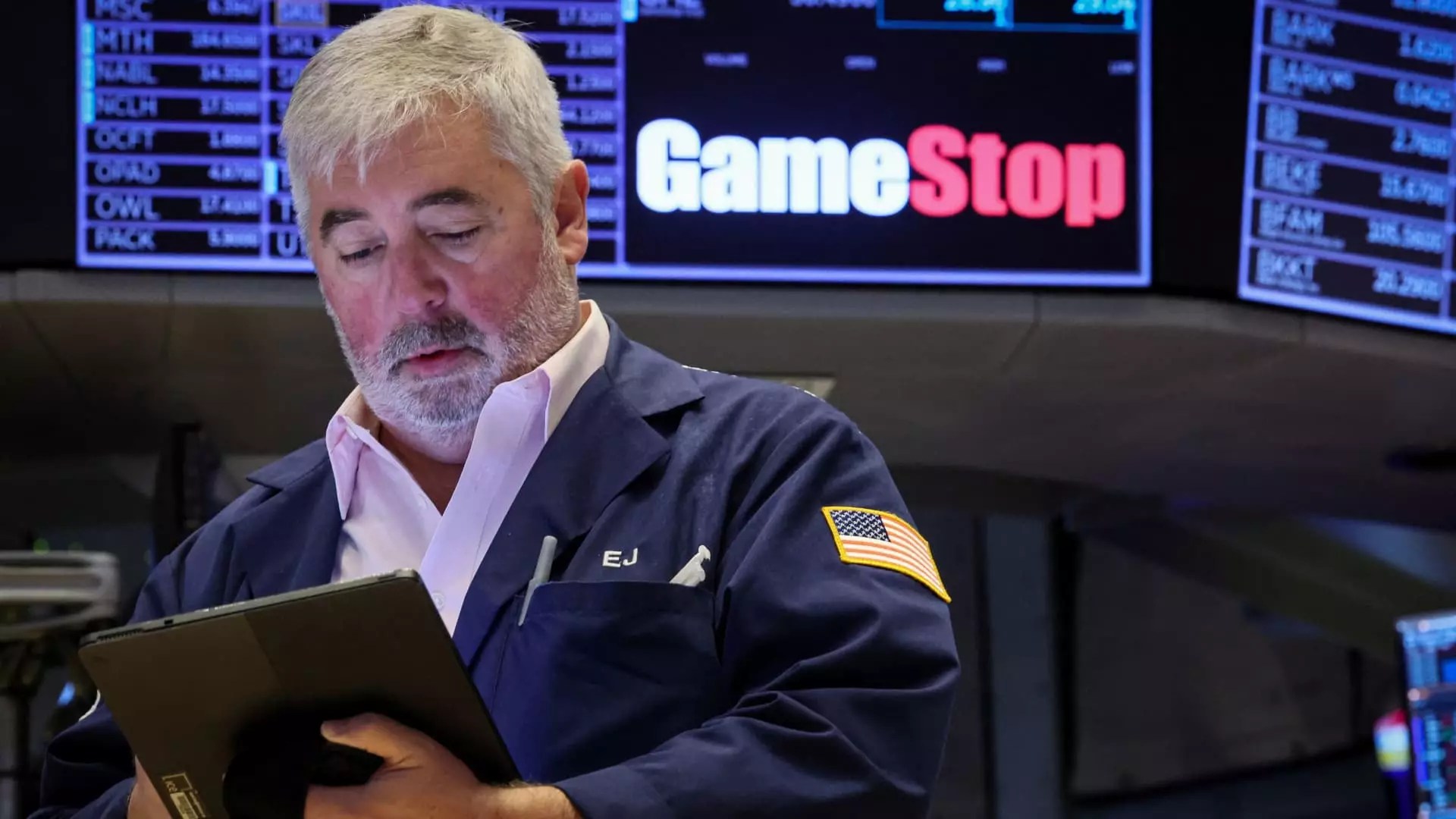In an era where cryptocurrencies have captivated the financial world, GameStop’s recent announcement to raise $1.3 billion by selling convertible bonds to support a foray into Bitcoin raises eyebrows and concerns. Following an impressive 12% rally, the stock took a dramatic 13% hit—a classic roller coaster ride for a meme stock that has captured public imagination and investor speculation alike. But amid the fizz of cryptocurrency excitement lies a complex reality that many investors may overlook.
Echoing the Legacy of MicroStrategy
GameStop appears to be mimicking a path paved by MicroStrategy, which originally made headlines with a bold commitment to Bitcoin. While there’s nothing inherently wrong with following a precedent set by another successful tech firm, GameStop’s circumstances are notably different. MicroStrategy managed to sell their Bitcoin holdings at reasonable valuations, while GameStop’s stock is already rated as substantially high by market analysts. This juxtaposition raises questions about whether this gambling approach will yield the anticipated rewards—or simply dig GameStop deeper into uncertainty.
Convertible Debt: A Double-Edged Sword
Taking on debt in order to buy Bitcoin isn’t just a corporate maneuver—it’s a perilous gamble. For GameStop, issuing 46 million additional shares as part of convertible debt spells potential dilution for existing shareholders. Investors must now grapple with an updated valuation of $12.7 billion, which highlights the puzzling disconnect between GameStop’s stock price and its actual assets. In simpler terms, why would investors pay excessively for a stock that is based more on speculation than tangible financial health? While the market may be attracted to the allure of Bitcoin, many seasoned analysts—including Wedbush’s Michael Pachter—forecast a bleak outlook, predicting that share prices might continue their downward slide ahead of the bond issuance.
Valuation Woes: Is This Sustainable?
Investors need to question the sustainability of GameStop’s recent moves. Unlike MicroStrategy, currently trading at less than double its Bitcoin holdings, GameStop’s stock trades at more than twice its cash balance after the issuance. This discrepancy isn’t just an anomaly—it’s an alarm bell. The fear of a potential crash looms larger as the company attempts to convert capital into what many deem a speculative asset. A failure to maintain momentum could result in an epic collapse, echoing past financial disasters driven by hype and uncritical optimism.
The Meme Stock Phenomenon: Temporary Highs and Lasting Risks
GameStop’s brand notoriety as a meme stock plays a significant role in its market dynamics, but is this a reliable foundation for long-term growth? The company is betting that momentum will persist for another five years while it manages to navigate the volatility of Bitcoin investments. This type of speculative enthusiasm can often drown out rationale judgment, leading investors to ignore fundamental risks. Capitalizing on popularity might work for a season, but investing in a fundamentally strong company looks like a far better strategy in the long run to safeguard financial health.
While the allure of Bitcoin could captivate many, the reality is that in the world of speculative investing, the fervor can just as easily turn into folly. Understanding this delicate balance between innovation and caution is indispensable for today’s investors navigating these tumultuous waters.


Leave a Reply